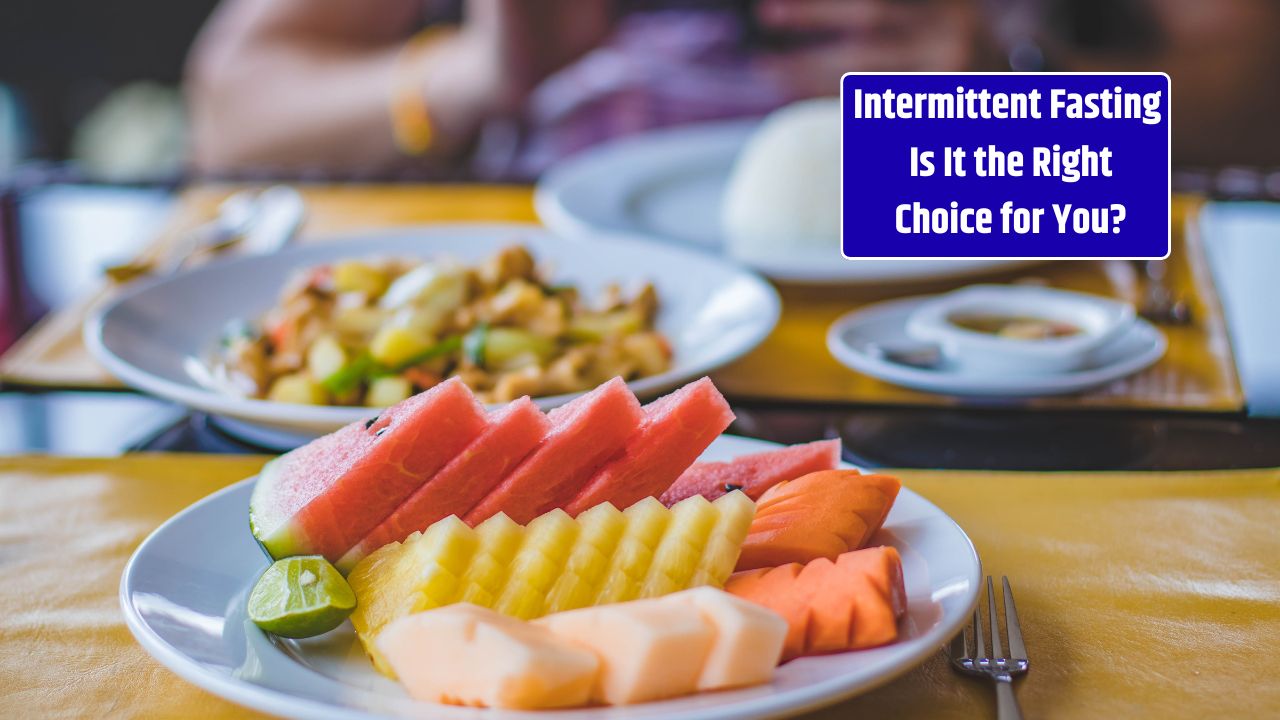Intermittent fasting has gone from a fringe health hack to a mainstream lifestyle trend in just a few years. Celebrities rave about it, fitness influencers swear by it, and even doctors are cautiously nodding along. But here’s the real question: is intermittent fasting actually right for you—or just another diet fad dressed up in science-y terms?
What Intermittent Fasting Really Is
Intermittent fasting (IF) isn’t about what you eat, it’s about when you eat. Instead of constant grazing, you cycle between periods of eating and fasting. The most popular styles include:
- 16:8 Method – Fast for 16 hours, eat during an 8-hour window.
- 5:2 Diet – Eat normally five days a week, limit calories (500–600) on two non-consecutive days.
- Alternate-Day Fasting – Fast every other day, or eat very little on fasting days.
- OMAD (One Meal a Day) – As extreme as it sounds, you eat once and fast the rest of the day.
Unlike restrictive diets, IF doesn’t tell you what foods to cut, but rather sets time boundaries for meals.
The Science Behind the Buzz
During fasting periods, insulin levels drop, prompting the body to burn stored fat for energy. At the same time, processes like autophagy (cellular repair) kick in. According to the National Institutes of Health, studies show intermittent fasting can help with weight management, insulin sensitivity, and even reducing inflammation. Some research also hints at benefits for heart health and longevity, though long-term human studies are still ongoing.
The Benefits People Notice
- Weight Loss – Many find it easier to cut calories without strict portion control.
- Better Focus – Some report improved mental clarity during fasting hours.
- Simplified Eating – Fewer meals mean less cooking, shopping, and planning.
- Potential Health Gains – Lower blood sugar levels, reduced cholesterol, and improved metabolic health are frequently noted in research.
The Downsides You Shouldn’t Ignore
Intermittent fasting isn’t a magic bullet. In fact, it can backfire if done carelessly.
- Hunger and Irritability – Especially in the early weeks.
- Overeating in Windows – Easy to binge once the fast breaks.
- Not Always Sustainable – Social dinners, family meals, and daily schedules can clash with strict fasting rules.
- Medical Concerns – IF may not be suitable for people with diabetes, eating disorders, or certain health conditions. Pregnant or breastfeeding women should also avoid it without medical advice.
A Quick Comparison
| Method | Eating Window | Difficulty | Best For |
|---|---|---|---|
| 16:8 | 8 hrs | Easy–Moderate | Beginners, busy professionals |
| 5:2 | 2 low-cal days | Moderate | Weight loss without daily fasting |
| Alternate-Day Fast | Every other day | Hard | Experienced fasters |
| OMAD | 1 meal/day | Very Hard | Highly disciplined eaters |
How to Know If It’s Right for You
Ask yourself:
- Do you prefer structure or flexibility? (IF works best for structured eaters.)
- How does your body handle skipping breakfast or dinner?
- Are your health goals about weight, blood sugar, or longevity?
- Do you have any underlying conditions that require steady food intake?
If fasting makes you miserable, constantly dizzy, or triggers binge eating, it’s probably not the right fit.
Practical Tips to Try IF Safely
- Start Gradually – Begin with 12:12 (12 hours fasting, 12 eating) before moving to stricter windows.
- Stay Hydrated – Water, black coffee, and tea are fasting-friendly.
- Focus on Quality Foods – Breaking a fast with donuts cancels out the benefits.
- Listen to Your Body – If you feel weak, lightheaded, or overly stressed, pull back.
- Talk to Your Doctor – Especially if you’re on medications, have diabetes, or other chronic conditions.
FAQs:
Can intermittent fasting help with weight loss?
Yes, many people lose weight by naturally eating fewer calories. But food quality and portions still matter.
Is coffee allowed during fasting?
Yes—black coffee, unsweetened tea, and water are fine. Anything with calories breaks a fast.
How long does it take to see results?
Some notice changes within weeks, but sustainable health benefits typically appear after afew months










